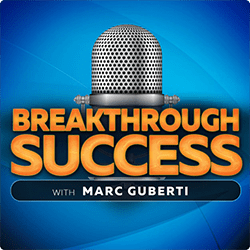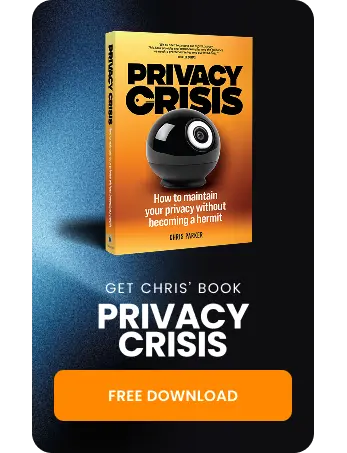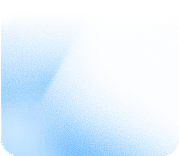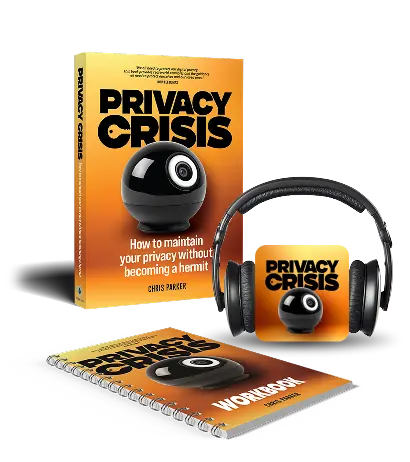Marc Guberti here and we’ve got an entrepreneurial journey from our special guest who went from a layoff to over six million monthly visitors on his website and a seven-figure income all in this interview. The guest we’re interviewing is the founder of whatismyipaddress.com, a tech-friendly website which he created back in 2000. This one has been around for a while and what began as an experiment turned into a side hustle during his extra time back when he had a shop. But then the layoff happened and he saw this as an opportunity to fully devote himself to the website. Now it’s a resource for people who are concerned about their online privacy, security, and freedom.
We’ve got a guest who is making it, we’ve got a guy with the seven figure income, who’s got a really meaningful site that’s helping people with their securities and some of the tech stuff that people don’t think about as much. Our guest is none other than Chris Parker. Chris, welcome to the show.
Chris: Thanks for having me on, Marc.
Marc: Chris, I’m so happy to have you on Breakthrough Success. It’s really impressive what you’ve been able to do with the site and I definitely have a bunch of different questions, but I really want to get started with when did you realize this could be something big, that this could really take off the way that it has?
Chris: I wish I could say that I figured that out three months after I launched the site. I wish I could say it was even three years after I launched the site. But it was probably much more around 10 years into it that I realized, “Oh, wait. There’s a real opportunity to make more than just a dinner out or a vacation here or there, but there was actually enough to potentially have a good living off of it. That was from way back 10 years ago that I made that realization.
Marc: Wow. I feel like for a lot of people, if you started 2000, it’s different because training courses, self-publishing books. You’re not hearing about the stuff, but I feel like people realize later that there is potential to make this a full-time thing. I wonder if you could talk a little bit about how you’re able to grow the website and get the initial momentum because six million monthly visitors is really amazing, but it didn’t start that way. Can you talk about how you did it initially?
Chris: Sure. I initially launched the site back in the days of AltaVista and Lycos, which is probably way before many people’s memory of the internet. Most people don’t think there is an internet before Google, but there was. Initially, when you launch the site you had to submit your site to the search engines and there were a variety of tools that would do that at the time. I definitely did that. These days, my goodness, you register a domain name and it’s been crawled before you can even get a website up. But it was definitely not the case almost 20 years ago. You submit it and they say, “We’ll get to it in a couple of months, maybe three months, maybe six months.” Maybe they’ll index it, maybe they won’t. You got a typo, sorry, it’s got to take a while for it to show up that it’s been fixed.
But I think the core philosophy that has really helped me over the years that I’ve really tried to think of the people that I’m serving first. Initially, when I launched the website, it was just showing the person the IP address on the screen, there is no other text, there is no mark up. Just on the upper left hand corner and eight point Arial font, there is your IP address.
It was after I saw the logs of the surfer building up that I realized, oh wait, there’s an opportunity here. This is really a popular tool, maybe I should engage with it a little bit more. I put my email address on there so that if you have questions, ask me questions. Nights and weekends, I was responding to people’s questions and have the realization that, gosh, I’m answering the same question an awful lot of times.
Let me put a FAQ on the website. I took the 10 most common questions and answered them on the website, and lo and behold, the amount of emails that I was receiving went down and the traffic to the website went up because those were things people were actually looking answers for and I was giving them exactly what they were looking for.
Marc: That’s really smart how Chris saw that people asking him these questions and he put it on his own website. That’s a way to rank on Google, it’s a way to cop with free content, it’s a way to cop with training courses and services as well. I’m wondering is this how you eventually started to make money with it, like you just saw questions and you created products around them?
Chris: I actually have created no products that I sell whatsoever which lots of people are going, “Oh my gosh, why haven’t you done that?” I tried to run the previous business where I was selling books in the pre-Amazon days, around the Amazon launching days, and I hated the process of running credit cards, having returns, and people physically returning products or people disputing credit card charges. At the time it was not scalable. I don’t want to do that. I just want to build something. I only have to deal with vendors, I don’t have to have the customer service department, billing department, dealing with all these little things.
When Google AdSense came out, I put AdSense on the site. Everybody these days is really with AdSense. It’s a little chunk of code that you throw on your website and Google, at the time, matches your content with advertisers that were interested, that matched up with the content. These days I do IntroSpace ads, all sorts of fun things, demographic targeting, and amazing what Google can do and what a lot of other platforms do as well. That was the realization that there’s a lot of traffic to me here and there is an opportunity to make a lot of money off of this.
I wish I could say that all six million visitors to the site are from the United States, when in fact it’s probably less than a third of the traffic is US. It does introduce earning issues that other US-based businesses potentially don’t have. When I have traffic from Bangladesh, let’s say, it doesn’t earn nearly as much money as someone from the United States.
I have lots of traffic and some of it is not super monetizable in the terms of if I double the traffic I’m going to double my income. I’m actually really excited in the last couple of weeks, my traffic from India tripled. My earnings went up by nothing. I shouldn’t say not nothing, but a very negligible amount of money because people in India do not have their earning power that they do here in the US. There’s a currency differences and all that stuff really play a role into that.
But I’ve just continued to work to produce content that’s surrounding people’s questions, trying to be helpful rather than, how can I make a quick buck off of people. I’ve seen lots of people selling lots of sleazy products online or let’s throw 45 pop ups on the screen and let’s try to leverage much money out of people as quickly as I can. Life really gone with the attitude of I want to do this for the long haul. I want to treat the people who come to my site, my tribe with respect and provide them with experience that meets their needs, and also allows me to make a living.
Marc: I love how Chris’ focus on helping people. Because if you’re focused on helping people like the […] they come eventually. You want to do the whole impact before the income but any income that’s come eventually. I definitely love that focus on helping. It’s really interesting in your case when you got laid off, you saw this as an opportunity to focus more on your website. I feel like for a lot of people who get laid off, it’s just a struggle to acknowledge what just happened and move on from there.
Can you tell us a little bit about how you’re able to bounce back and be able to go from that moment, that low point to where you are now?
Chris: It was really an interesting thing. I’m glad that I can look back at it as an opportunity. When it happened, it really gave me the opportunity for my wife and I to say, “Okay, well, gee, will investing more time in my business actually result in more revenue?”
I have work product that if I work four hours, I make $400, if I work eight hours, I’m going to make $800. When I’m producing content for the website, there’s no guarantee that if I start spending $40, $60, $80 hours a week putting more content on the site, that it will necessarily offset the loss of my daytime job.
That was something my wife and I talked about during this time. It’s like, “Do I think I can make up the loss of a full-time income over the course of the next six months or a year? How do we go about doing that? There’s loss of benefits. Do I really want to do this?”
We’re risk averse. The first thought in my mind was not like, “Yeah, let me jump in feet first and this will be amazing.” This is a risk. I know that with the economy, it’s not what it was 10 years prior to that and if I’m off the books, off on employment role for too long, employers look at that and go, “Well. Gee, you haven’t worked for the last couple of years. What makes you think you’re current?” I think there was that worry in both of us that if I did this and it didn’t produce income, it didn’t produce an increase in revenue, that would probably hurt us in the long run.
We set up a plan. A 3-month, 6-month and a 12-month goal. Will I be able to hit those milestones while investing the time and energy in growing the site? Lo and behold, I was able to hit those goals and part from the work that I did, but I started to pull in other content writers, who are better writers than I, pull in a graphic artist who’s a better graphic artist than I, and even a couple of years ago, started working with a business coach to really help me think about my business in a different way.
Marc: And it increases insight. It’s interesting to hear. Business is a risk. There’s also a risk in putting all of your income of one source. There’s a lot of risk going on in general, but the thing to remember about Chris is he started this as a side hustle. It’s not like he left the job and then he came up with this brilliant idea and he worked on it. He was working on it as a side hustle and then it was easier for him, still risky, but easier for him to take the path that he chose to take.
For everyone who may be at job at this moment, it is good to start off with a side hustle, find the extra time to see if this is something that you could really take to that finish line and have it eventually replace your income.
Chris: Yeah. I was really excited by it, that I didn’t have to do an all or nothing type of thing. That there was already an established arc trajectory of revenue, which is a matter of can I make it a hockey stick instead of a flat vine.
Marc: Right, and then Chris investigate himself is also another big factor that lead to that growth. Now, this is a website that I think we should focus on the part of what the website is about. It’s about security, it’s about online privacy, things like that. What would you say are some of these security and safety tips for protecting ourselves and our businesses?
Chris: There are three things that we definitely need to do. This probably applies to not just businesses but just individuals and then I’ll throw in a bonus for businesses. Everybody should be using a password manager. If you’re not, you either have a phenomenal memory and you can remember hundreds of passwords or you’re like me and you can’t. It’s great to have a piece of software that remembers all your passwords for you and the reason for this is pretty much everybody is getting breached once a month or once a year. There’s a great site, Have I Been Pwned, you drop your email address in there and it’ll show you where your email address and the corresponding password has been exposed on the internet. Probably not everywhere, but dozens and dozens of breaches.
You throw it in there and you have this realization that, oh my gosh. That password that was my favorite password in highschool that I used for 10 years is out there and it’s associated with my email address. If I’m using it at my bank, if I’m using it for my utility bills, anyone can get into those sites and learn more about us and access our accounts and steal money from us.
The second thing is two-factor authentication. Everyone’s like, “What in the world is that?” That’s when you want to log in to your banking website, they send you a little SMS message on your phone, and you have to type that in order to log in to your account. There’s lots of other mechanisms to do that. There’s Google Authenticator, there’s key fobs, but for someone who’s not doing it at all, SMS is a great place to start. Just get that text confirmation on your phone, it’s just one additional step that even if someone does get a password of yours, it’s one more barrier to access your account.
Number three is please use automated off-site backup. There’s a gentleman I used to work for and at some point I had asked him, “Hey, what back up are you doing?” He’s, “Oh, I’ve got this drive attached to my computer and whenever I think about it, I copy my files over to it.” I’m like, “Well, what happens if someone comes in and steals your back up?” He was like, “Oh. Well, I’ll figure it out.” I was like, “Gosh. I hate to be one of your customers who are relying on your service when you lose all your contacts, you lose all your accounting, and now you’re left of figure it out.”
And I say do off-site because there are situations where homes burned down, office buildings burn down. If the back up is the same location, then there really isn’t a back up. It’s not really secure and safe. There’s lots of programs out there, a lot of services out there that provide that.
For entrepreneurs, I say, “Have established processes and place for portions of your business.” I know someone else who at his office, the accounting girl got an email that looked like it came from the owner of the company that basically said, “Hey, I’m on a really important call right now so I can’t talk to you and I’ve set up this new vendor and I need to send him $5000 right now. Here’s the account. Just do it.” She gets the email, the scammer had cloned his signature addressed her by name, created a fake email address that looked very similar to his email address, and so she starts to go on and process this wire transfer.
At some point she realizes, “Oh, we have multiple bank accounts. I don’t know which one I should send it from. Why don’t I go over to his office and asked him.” She goes down and says, “Hey, which account you want to send the money from?” He’s like, “What are you talking about?” She was basically one click away from doing an international wire transfer and just sending away thousands of dollars to some scammer.
That’s frightening. That’s insane. With my website, I hear about this thing happening on a monthly basis. Someone comes in and says, “Oh, my accountant wired money.” Or, “My payroll person put a fake person on payroll. What do I do?” Part of that is just having a process in place that there’s no physical piece of paper that someone has to say, here’s a new vendor set it up on our system and it’s not just totally reliant on an email or a text message to do it.
Marc: Wow. That’s a lot of really awesome stuff and it really encapsulate that. When Chris was telling us a story about his colleague, it was, “I’ll figure it out when it happens to me.” I think that’s a lot of us right now where if it happens, we’ll figure it out. But why try to figure it out if you could just prevent in the first place. I got no security, for me and my passwords, and all these stuff, it’s annoying to do, but if you do it one day it could save you a lot of heartache later, when everyone’s getting breached and your favorite password is the one you use everywhere. I definitely love that insight from Chris.
I wonder if we could shift a little bit to habits. I love habits. I feel like habits are make or break for all of us. I wonder if you could share with us some of the habits you would say are essential for your success.
Chris: There’s a couple of habits that I’ve had to learn how to develop in the last couple of years. Way back when I had tried to do a couple other businesses, people had given me some business books. I flipped through and went, “Meh. Okay, this isn’t very interesting. I don’t know how to apply this.” But over the last couple of years, I really worked really hard to constantly be trying to learn practices from people who have a different perspective on life than me.
I’ve read through Tim Ferriss’ The 4-Hour Workweek, Chris Bailey’s The Productivity Project, Hal Elrod’s The Miracle Morning, David Allen’s Getting Things Done, and really tried to figure out what are some of these things that I can apply to my life, I can apply to my business to help me be more effective, really having that learner’s mindset, and like we talked about before, investing in my own business, investing in my own professional development. And trying to figure out how to do things that will move my business forward that are outside of my comfort zone.
Marc: Chris, I love that idea of investing in your development. I’ve seen it in me. I’ve hired coaches for my podcast and YouTube. I’m also a coach, if anyone who’s interested in podcasting, Virtual Summits, making valuable content, webinars, or sales funnels. If you want to schedule free chat, you call for me, that’s marcguberti.com/strategy for anyone who’s interested.
Chris, it’s been such a pleasure to have you on Breakthrough Success. And just let us know a little bit where we could find you. I know your website is whatismyipaddress.com which will be in show notes, but is there any other place that we could find you or do you just want us to all head over to your site?
Chris: You could all definitely head over there, I’d really appreciate it. But if people want to see a little bit more behind the scenes and the stuff that I’m doing outside of whatismyipaddress.com they can head over to cgparker.com, I’m going to send it over so you can draw it in the show notes.
Marc: Chris, thank you so much for taking the time to be on Breakthrough Success. It’s such a pleasure to have you on the show.
Chris: Thank you very much. It was a great time.













